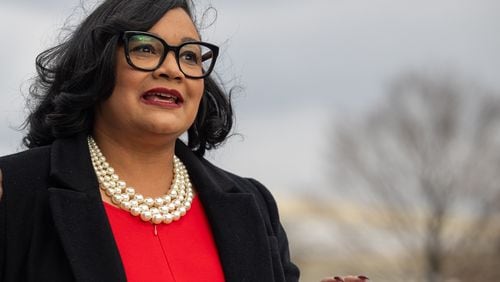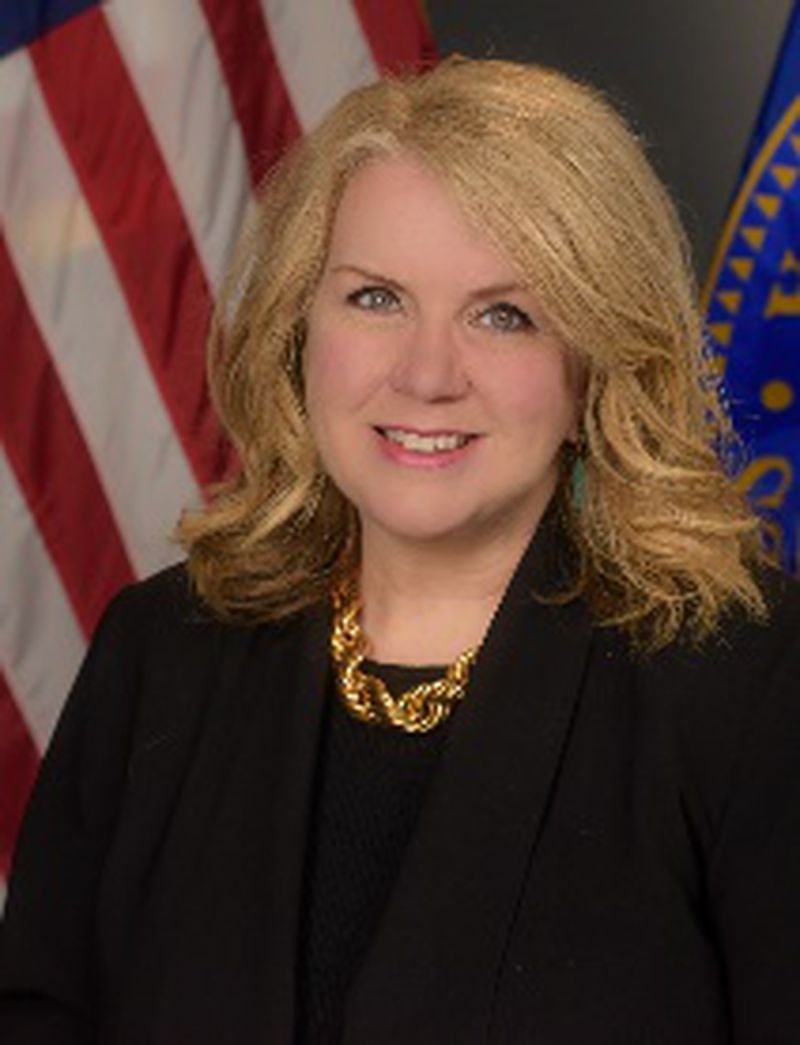The Biden administration is confronting the country’s worsening maternal mortality rate with visits to multiple states, including Georgia on Monday, to focus attention on women’s access to health care.
The visit to Atlanta is part of a year-long initiative launched in January to expand the federal government’s work to address maternal health disparities across the country and implement the White House Blueprint for Addressing the Maternal Health Crisis. The meeting will bring together community organizations that are already working to reduce pregnancy-related deaths and complications in Georgia.
The problem is especially acute in Georgia, where women are dying from pregnancy-related causes at the highest rate documented by the state in the past decade. Each year, between 35 and 40 mothers die in Georgia, yet the vast majority of deaths are believed to be preventable, the AJC reported earlier this year.
“Nothing breaks my heart more than when we go to a meeting and a woman who has had a bad maternity outcome says, ‘I thought I did everything right’,” said Carole Johnson, administrator of the federal agency that is organizing gatherings in multiple states. “The burden shouldn’t be on women. The burden should be on us as policymakers to make sure that they have all the services and supports they need to have the best possible outcome.”
Credit: Submitted
Credit: Submitted
Johnson leads the Health Resources and Services Administration, an arm of the U.S. Department of Health and Human Services, that focuses on funding state and local maternal and child health programs. The work includes growing the state’s health care workforce, supporting maternal health care in rural areas and ensuring people can access health care regardless of their ability to pay, she said.
Johnson is expected to announce new funding for maternal health programs during her visit.
The federal agency awarded more than $128 million to fund health centers across the state last fiscal year. In 2022, the centers in Georgia provided prenatal services for 7,500 people and supported the delivery of 2,100 babies, Johnson said. The agency also supports an array of services before and after a mother gives birth.
Dr. Tracey Lemon, an obstetrician who works at one of the health centers and has practiced medicine in Atlanta for 23 years, said there are fewer maternal deaths in the city.
Lemon attributed it to required annual training and drills at the hospitals so physicians and nurses can practice their response to critical incidents, such as when a woman has a hemorrhage. And, at her practice, all pregnant women are referred to a high-risk pregnancy specialist, known as a perinatologist.
There’s enough of these specialists locally to screen pregnancies in the metro area.
“That is a very big benefit and the reason why I think we enjoy low mortality numbers,” Lemon said.
Expanding these specialized services to smaller towns could help lower Georgia’s maternal mortality rate, Lemon said.
Monday’s visit will focus on ways to lessen the health disparities that women face due to where they live or their race.
Many women experience pregnancy complications, such as bleeding or high-blood pressure, that put their life and the lives of their babies in danger. Pregnancy can be particularly risky for Black women, who are two times more likely to die from pregnancy-related causes than white women in Georgia, according to state data.
U.S. Rep. Nikema Williams, D-Atlanta, gave birth to her son, Carter, eight years ago and was leaving the hospital when a nurse checked her blood pressure and realized it was high. Williams was readmitted and put on medication for post-partum pre-eclampsia, which is a life-threatening condition. In an instant, a moment that should have been filled with joy was replaced by stress as her 3-day-old son went home without her, she said.
Williams said she feels fortunate to have received the care she did and that she didn’t become “yet another statistic.”
“I know that everybody’s story doesn’t end that way,” she said. “There are so many moms that go into the hospital and never come home, or they lose their life within the first year after childbirth.”
Williams said now is the time for action, which includes expanding health care access through Medicaid.
“We already know what the problem is, but now we need to address it. We can expand Medicaid to get people the care that they need, but yet we are playing political games with this,” Williams said.
She pointed to recent statements during an AJC live event when Gov. Brian Kemp said that he opposes Medicaid expansion, despite growing support among Republicans.
Lemon, the Atlanta obstetrician, said it remains hard to enroll in Medicaid, but that access to health insurance and health care has improved since the passage of the Affordable Care Act, also called “Obamacare.” What she sees now is some patients foregoing certain procedures, because they cannot afford to pay their plan’s high deductible.
“A lot of patients who get the Obamacare plans are getting care now and not falling between the cracks,” Lemon said.
In Congress, Williams is sponsoring a bill to support the use of telehealth to expand remote patient monitoring and expand access to health care in underserved areas.
The issues of health care access is both a rural and urban issue in Georgia, Williams said. Rural hospitals have closed, and during her three years in Congress two hospitals in her Atlanta district have also closed. Williams said she is grateful that Grady Health System plans to open a standalone emergency room in Union City, but it doesn’t fully meet the need of the community, she said.
“Unfortunately it surpasses urban or rural lines and it is a crisis all over the state,” Williams said. “We need people to step up and be the leaders that we’re elected to be and make these changes.”







